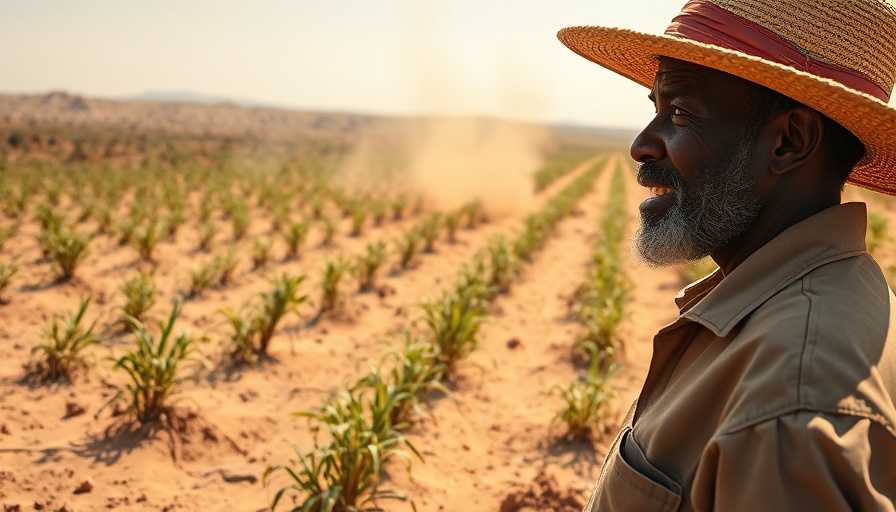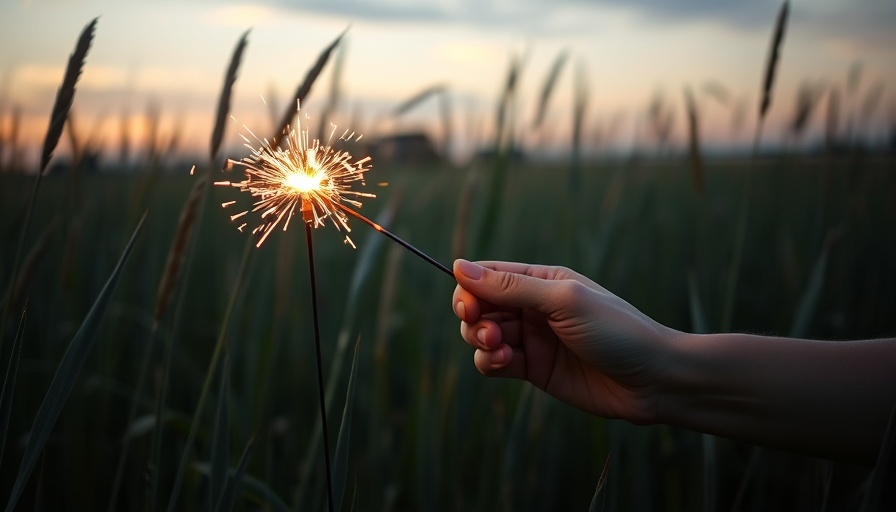
Supporting Madagascar’s Smallholder Farmers Amid Climate Challenges
Madagascar, one of the world's unique biodiversity hotspots, has faced a relentless struggle against extreme weather events over the past two decades. In a country where agriculture is not just a way of life but a lifeline, smaller-scale farmers have weathered the brunt of severe droughts and the devastating effects of climate change. However, help is on the way. A new program is set to support approximately 500,000 smallholder farmers, ultimately benefiting about 3.5 million people by increasing their resilience against climate shocks and improving food security.
A Program Designed for Resilience
The Inclusive Agricultural Value Chains Program (DEFIS+) is a groundbreaking initiative backed by a six-year, $150 million investment. This program builds upon an existing effort by the International Fund for Agricultural Development (IFAD), which focuses on enhancing the productivity of small-scale farmers with sustainable practices. Since its inception, DEFIS+ has already proven successful, promoting resilient farming practices across 10,000 hectares and increasing yields by as much as 30%. This ambitious program aims to combine traditional knowledge with innovative technological practices to tackle the unique challenges faced by Madagascar’s farmers.
The Effects of Drought and Climate Change
The challenges that Madagascar faces are daunting. With five severe droughts occurring in the last two decades, the struggle to maintain water availability has been exacerbated by climate change. This has led to decreased agricultural output, deepening food insecurity for over 1.3 million people since 2021 alone. As a result, the need for programs like DEFIS+ is not merely beneficial—it is essential for survival.
Combatting Hunger Through Sustainable Practices
One of the pillars of this new program is enhancing farmer education on water management—an important practice, especially in drought-prone regions. Farmers are learning how to efficiently distribute water across their plots to ensure every seed has enough nourishment to thrive. For instance, water management strategies aren't just saving crops but also livelihoods as they navigate the unpredictable weather patterns that so often ravage the land.
The Broader Impact of Eco-Conscious Agriculture
For boutique hospitality professionals, understanding and supporting the local agricultural community can also enhance business sustainability. These businesses can incorporate local produce into their offerings, which not only supports small-scale farmers but also aligns with sustainable development goals. Expect to see more eco-lodging options that celebrate this local produce, offering guests fresh meals that are not only tasty but contribute to the resilience of local communities.
Creating Lasting Change: A Call to Action
As we witness increased support for sustainable agriculture in Madagascar, there is a growing responsibility for businesses to follow suit in their own sustainability goals. Boutique hospitality businesses can pioneer initiatives that embrace off-grid solar solutions, utilize paper wrappers instead of plastic, and incorporate urban farming or community gardens in their operations. By aligning with practices that reduce fossil fuels and promote corporate sustainability, these businesses can cultivate a conscientious brand that resonates deeply with eco-aware travelers.
Conclusion: A Path Forward
As Madagascar’s farmers receive critical support through DEFIS+, there lies an inspiring opportunity for travelers and eco-conscious businesses alike to play a part in this transformational journey. By aligning purchasing decisions with sustainability goals and by fostering partnerships with local producers, we can echo the lessons learned in Madagascar: resilience grows from sustainable practices rooted in community support. Let's commit to understanding our role in this interconnected world and actively contribute to sustainable agricultural efforts around the globe.
 Add Row
Add Row  Add
Add 




Write A Comment